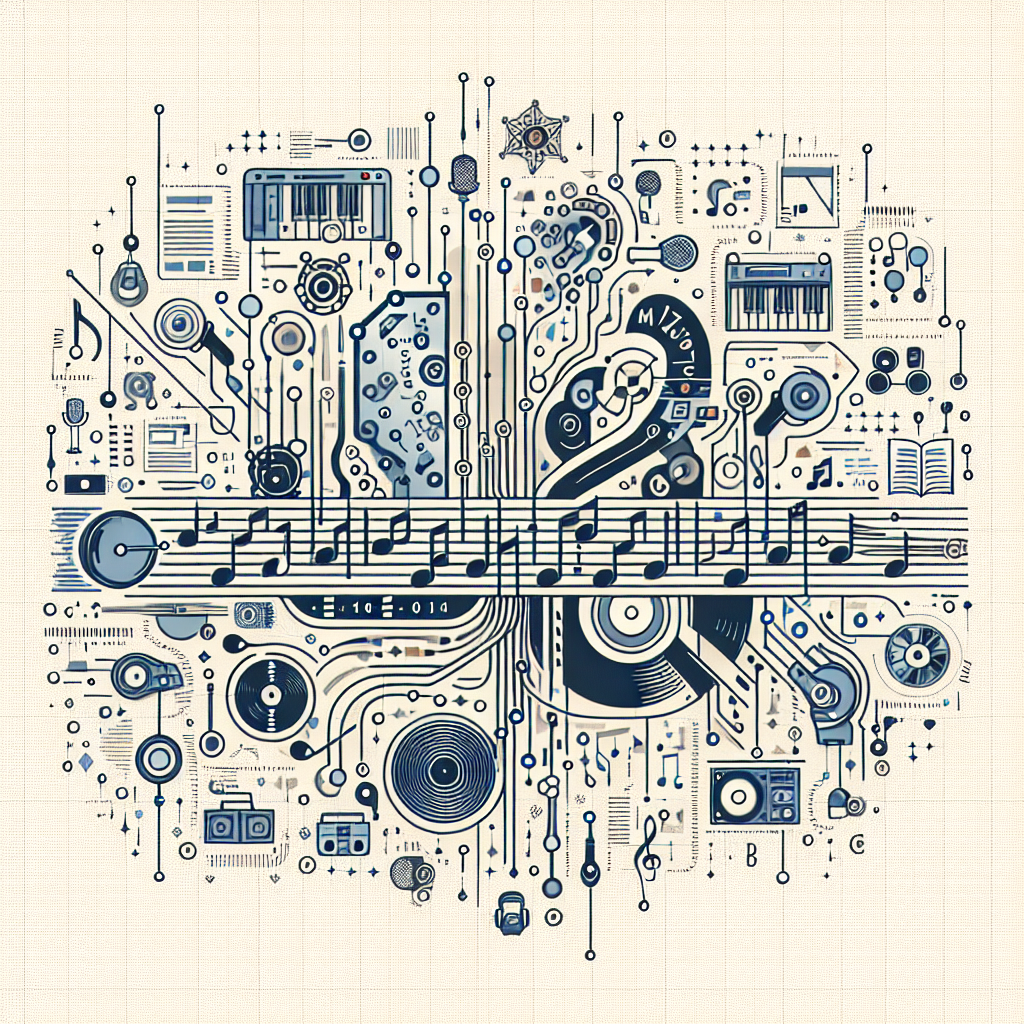The Intersection of AI and Music Journalism
In recent years, artificial intelligence (AI) has been making its mark in various industries, including music journalism. AI technology has the potential to revolutionize the way music is covered and analyzed, offering new insights and opportunities for both journalists and music enthusiasts alike. In this article, we will explore the intersection of AI and music journalism, its impact on the industry, and what the future holds for this exciting collaboration.
AI in Music Journalism: How Does it Work?
AI technology in music journalism works by using algorithms and machine learning to analyze vast amounts of data related to music, artists, and trends. These algorithms can sift through a multitude of sources, such as social media, streaming platforms, and music databases, to gather information and insights that would be impossible for a human journalist to process on their own.
One of the key ways AI is being used in music journalism is through the creation of automated content. AI programs can generate articles, reviews, and even interviews based on data analysis and pre-set criteria. This can help streamline the content creation process and provide journalists with valuable insights to support their writing.
AI can also be used to predict trends in the music industry, analyze audience preferences, and even suggest new music to listeners based on their listening habits. This can help journalists stay ahead of the curve and provide readers with fresh and relevant content.
The Impact of AI on Music Journalism
The impact of AI on music journalism is already being felt in a number of ways. For one, AI technology can help journalists uncover new artists and music genres that may have gone unnoticed otherwise. By analyzing data from streaming platforms and social media, AI can identify emerging trends and recommend new music to listeners.
AI can also help journalists personalize their content for different audiences. By analyzing data on listener preferences, AI programs can suggest topics and angles that are likely to resonate with specific groups of readers. This can help journalists tailor their content to engage with a wider range of readers and attract new audiences.
Another important impact of AI on music journalism is the ability to analyze and interpret complex musical compositions. AI programs can analyze music tracks to identify key elements such as tempo, mood, and instrumentation. This can help journalists provide more in-depth analysis and commentary on music, giving readers a deeper understanding of the creative process behind their favorite songs.
The Future of AI in Music Journalism
As AI technology continues to evolve, the future of music journalism looks bright. AI has the potential to revolutionize the way music is covered and consumed, offering new opportunities for journalists to engage with their readers and provide insightful commentary on the ever-changing music industry.
One exciting development in AI and music journalism is the use of natural language processing (NLP) technology. NLP programs can analyze text data to understand the nuances of human language, helping journalists generate more natural and engaging content. This can help journalists create more compelling articles, reviews, and interviews that resonate with their readers.
Another exciting development is the use of AI in music curation. AI programs can analyze listener preferences and recommend new music based on their tastes. This can help journalists stay up to date with the latest trends and provide readers with personalized recommendations that cater to their individual interests.
FAQs
Q: Will AI replace human journalists in music journalism?
A: While AI technology is becoming increasingly sophisticated, it is unlikely that AI will completely replace human journalists in music journalism. AI can help streamline the content creation process and provide valuable insights, but human journalists bring a unique perspective and creativity to their work that AI cannot replicate.
Q: Can AI accurately predict trends in the music industry?
A: AI programs can analyze vast amounts of data to identify emerging trends in the music industry, but predicting the future is always a challenge. While AI can provide valuable insights and recommendations, it is important for journalists to use their expertise and intuition to interpret this data and provide informed commentary on trends in the music industry.
Q: How can AI help music journalists discover new artists and music genres?
A: AI technology can analyze data from streaming platforms, social media, and music databases to identify emerging artists and music genres. By analyzing listener preferences and trends, AI can help journalists uncover new music that may have gone unnoticed and provide readers with fresh and exciting content.
In conclusion, the intersection of AI and music journalism is an exciting and rapidly evolving field. AI technology has the potential to revolutionize the way music is covered and analyzed, offering new opportunities for journalists to engage with their readers and provide insightful commentary on the ever-changing music industry. As AI technology continues to evolve, the future of music journalism looks bright, with new possibilities for personalized content, trend analysis, and music curation on the horizon.

